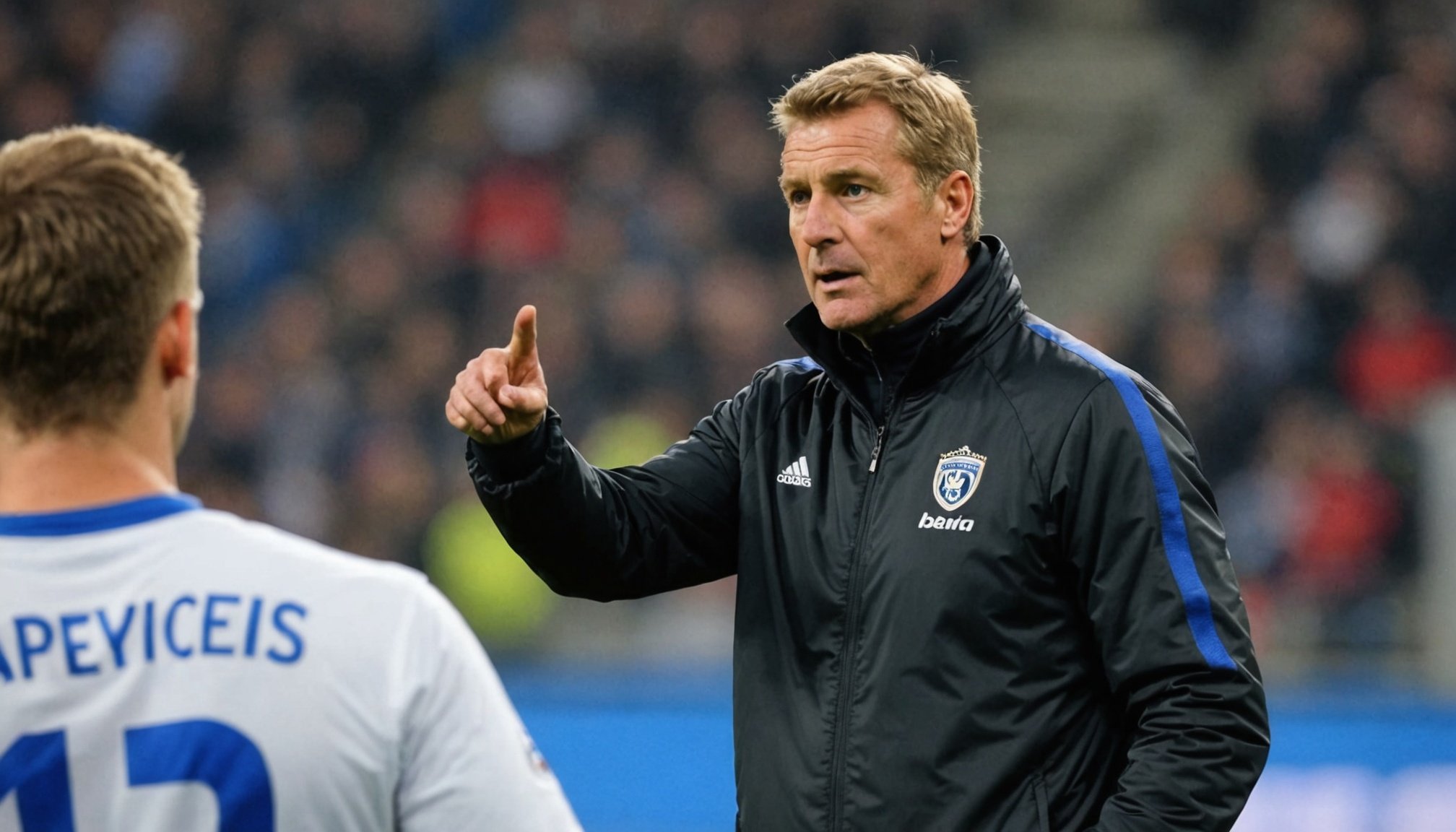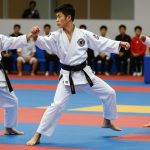Understanding the Importance of Focus in High-Pressure Situations
In the intense world of football, maintaining focus during critical match moments can be the difference between winning and losing. The ability to concentrate can significantly enhance match performance. During decisive plays, a player’s attention to detail ensures precision, whether in passing or shooting.
Psychological resilience plays a crucial role in maintaining this focus. Athletes often face immense pressure from not just the opponents but also from fans and self-expectations. Psychological factors such as anxiety and stress can hinder concentration, leading to performance errors. Developing resilience helps players remain composed and unwavering, even in the most stressful situations.
Also read : Illuminating the Game: How Evening Artificial Lighting Influences Football Matches and Player Performance
In several case studies, improvements in focus have led to better outcomes in matches. For instance, players who practised mindfulness techniques reported enhanced concentration, resulting in fewer mistakes and more strategic gameplay. Sessions with sports psychologists also contribute, providing tools to manage pressure effectively.
By building these skills, footballers can optimise their focus in football, ultimately leading to superior match performance. Emphasising psychological training alongside physical conditioning can foster an environment where athletes thrive under pressure, transforming potential into consistent, exceptional play.
In the same genre : Essential Elements for an Effective Football Training Camp: Unlocking Success for Teams
Actionable Strategies for Enhancing Player Focus
Enhancing player focus can be achieved through tactical focus strategies, concentration drills, and mental exercises tailored to various game stages.
Pre-Match Routines
Players can boost their focus by engaging in structured pre-match routines. These routines often include a combination of warm-ups, drills, and mental preparation. Visualization techniques are key to pre-match focus. These involve mentally rehearsing the game, enabling players to anticipate scenarios and mentally prepare for them. Additionally, breathing exercises can be indispensable for calming nerves and ensuring players enter the match with a clear and concentrated mindset.
In-Game Attention Drills
Maintaining focus during the game is crucial and can be supported by specific drills designed for this purpose. Incorporating verbal cues into these drills helps players keep their concentration, especially during crucial moments of a match. Moreover, integrating focus drills into regular training sessions ensures that players consistently practice and refine their concentration abilities, which translates into improved in-game performance.
Communication Techniques
Communication with players during high-pressure moments can greatly influence their focus. Effective communication techniques include using positive reinforcement to motivate and maintain concentration. Additionally, coaches can employ strategies to minimize distractions, ensuring that players remain focused on the task at hand, thereby enhancing overall team performance.
Psychological Techniques to Build Mental Resilience
Building mental toughness is crucial for achieving success, especially under pressure. To foster a resilient mindset in players, several psychological techniques can be employed. The first step involves teaching athletes to manage their stress through emotional regulation. This skill allows players to maintain composure and decision-making abilities during high-pressure scenarios.
One effective strategy for developing emotional regulation is through mindfulness practices, such as meditation or controlled breathing exercises. These practices help athletes focus their thoughts and emotions, ensuring clarity during crucial moments. When players learn to regulate their emotions, they experience reduced anxiety levels, leading to improved performance.
In addition to individual techniques, embracing strong team dynamics can substantially enhance a group’s mental toughness. Successful teams often engage in team-building exercises that promote trust and unity. These activities can include role-playing scenarios, problem-solving tasks, or cooperative games that demand collective focus and strategy.
By improving trust and communication within the team, each member feels more supported, leading to a stronger collective resilience during challenges. Players who understand the importance of teamwork often find it easier to overcome setbacks, adapt to changing conditions, and strive towards shared goals.
Player Testimonials and Real-Life Examples
In the high-stakes world of sports, focus-enhancing strategies can make a significant difference. Players often share transformative experiences related to these tactics. Many athletes attribute improved performance to specific strategies that help maintain focus during intense matches. Athletes have consistently reported that personalised training routines and mental exercises significantly boost their on-field concentration.
Consider the successful application of these focus tactics by well-known teams. For instance, certain football squads incorporate unique focus drills in their training regimens, yielding notable improvements. These methods are tailored to the team’s dynamics and individual player needs, highlighting the effectiveness of customised coaching.
The journey from practice to match play encompasses strategic applications in real-life scenarios. Teams implementing focus-oriented practices often see these tactics reflected during games. An example is the adept use of mindfulness practices which players claim reduce stress and enhance performance under pressure.
Coaches play a crucial role in this process, with effective coaching techniques often marking the line between good and great teams. Emphasis on communication, player psychology, and adaptable tactics have proven successful in developing a keen focus. Player testimonials underscore the importance of these strategies, offering insights that both athletes and coaches can integrate into their daily routines for success.
Incorporating Visual Aids and Technology in Training
The integration of technology in football training has transformed the way teams prepare and strategize. One of the most significant advancements is video analysis, which allows coaches to meticulously review game footage. This method not only highlights areas for improvement but also aids players in enhancing their focus by visualizing past performances and understanding opponents’ tactics.
In addition to video analysis, there is a plethora of tools and apps designed specifically for mental training. These technologies cater to individual player needs, focusing on aspects such as concentration and emotional regulation. Apps that simulate in-game scenarios or provide mindfulness exercises are particularly effective, enabling players to mentally rehearse and improve their focus enhancement skills.
Visual aids also play a crucial role in maintaining team concentration. Teams can use digital whiteboards or AR (augmented reality) systems during practice sessions to illustrate complex strategies more clearly. This makes it easier for players to grasp tactics and react more swiftly during games.
By embracing these advanced methods, football teams can significantly improve their training regimens, ensuring that both player and team performances are continually evolving. The combination of visual aids and cutting-edge technology offers robust solutions to the challenges posed in modern football.
Building a Mentally Resilient Team Culture
Creating a mentally resilient team culture involves implementing effective support systems and prioritising resilience development. Teams can build resilience by fostering an environment that encourages open communication, where members feel secure to express concerns. This facilitates emotional support, empowering individuals to face challenges together.
A supportive team culture thrives on a continuous growth mindset. Such an environment encourages team members to view challenges as opportunities for learning and improvement rather than setbacks. By focusing on long-term goals and problem-solving, team members develop a strong capacity for resilience, enhancing overall performance.
Coaching staff play a pivotal role in promoting a focused team environment. They can guide resilience development by setting achievable objectives and providing constructive feedback. By offering personalised coaching, staff ensure each team member understands their role within the group, fostering a sense of belonging and purpose.
To sum up, integrating a comprehensive support system within a team culture strengthens collective resilience. This creates an environment where individuals are encouraged to develop personally and professionally, cultivating a sustainable mindset geared toward continuous improvement and long-term success.











